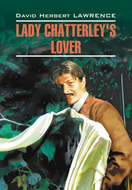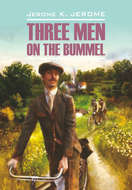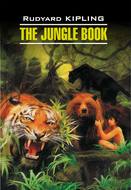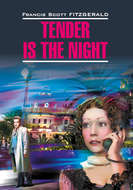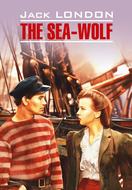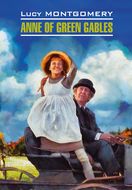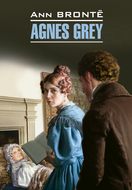Kitabı oku: «Just So Stories for Little Children / Просто сказки. Книга для чтения на английском языке»
© КАРО, 2018
Предисловие
Вы знаете или изучаете английский язык? Вы хотите узнать ответы на вопросы, откуда у верблюда горб, а у слона – хобот; как появился алфавит и почему кошки гуляют сами по себе; что произойдет, если мотылек топнет ногой? И вас, конечно, интересует, как выглядело первое на Земле письмо и почему у носорога такая кожа? В таком случае это пособие для вас!
Сборник английского писателя Редьярда Киплинга, куда вошли сказки, рассказанные писателем его собственным детям, не только унесет вас в чудесный и удивительный мир прошлого и ответит вам и вашим детям на эти каверзные вопросы, но и поможет обогатить ваш лексический запас новыми словами и выражениями. В пособии объяснены некоторые трудности английской грамматики. В конце каждого рассказа предлагается выполнить ряд заданий, которые помогут запомнить новые встретившиеся в процессе чтения слова и выражения, а также лучше понять содержание рассказов.
Занимательные, знакомые с раннего детства сказки Киплинга создадут веселую атмосферу на занятиях по английскому языку и зарубежной литературе, а комментарии помогут с легкостью преодолеть трудности грамматики английского языка, возникающие при чтении неадаптированных текстов.
How the Whale Got His Throat
In the sea, once upon time, O my Best Beloved, there was a Whale1, and he ate fishes. He ate the starfish and the garfish, and the crab and the dab, and the plaice and the dace, and the skate and his mate, and the mackereel and the pickereel, and the really truly twirly-whirly eel. All the fishes he could find in all the sea he ate with his mouth – so! Till at least there was only one small fish left in all the sea, and he was a small ’Stute Fish2, and he swam a little behind the Whale’s right ear, so as to be out of harm’s way. Then the Whale stood up on his tail and said, ‘I’m hungry’. And the small ’Stute Fish said in a small ’stute voice3, ‘Noble and generous Cetacean, have you ever tasted Man?’
‘No’, said the Whale. ‘What is it like?4’
This is the picture of the Whale swallowing5 the Mariner with his infinite-resource-and-sagacity, and the raft and the jack-knife and his suspenders, which you must not forget. The buttony-things are the Mariner’s suspenders, and you can see the knife close by them. He is sitting on the raft, but it has tilted up sideways, so you don’t see much of it. The whity thing by the Mariner’s left hand is a piece of wood that he was trying to row the raft with when the Whale came along. The piece of wood is called the jaws-of-a-gaff. The Mariner left it outside when he went in. The Whale’s name was Smiler, and the Mariner was called Mr. Henry Albert Bivvens, A. B. The little ’Stute Fish is hiding under the Whale’s tummy, or else I would have drawn him. The reason that the sea looks so ooshy-skooshy is because the Whale is sucking it all into his mouth so as to suck in Mr. Henry Albert Bivvens and the raft and the jack-knife and the suspenders. You must never forget the suspenders.

‘Nice,’ said the small ‘Stute Fish. ‘Nice but nubbly.’
‘Then fetch me some,’ said the Whale, and he made the sea froth up with his tail6.
‘One at a time is enough,’ said the ’Stute Fish. ‘If you swim to latitude Fifty North, longitude Forty West7 (that is Magic), you will find, sitting on a raft, in the middle of the sea, with nothing on but a pair of blue canvas breeches, a pair of suspenders8 (you must not forget the suspenders, Best Beloved), and a jack-knife9, one shipwrecked Mariner, who, it is only fair to tell you, is a man of infinite-resource-and-sagacity10.’
So the Whale swam and swam to latitude Fifty North, longitude Forty West, as fast as he could swim, and on a raft, in the middle of the sea, with nothing to wear except a pair of blue canvas breeches, a pair of suspenders (you must particularly remember the suspenders, Best Beloved), and a jack-knife, he found one single, solitary shipwrecked Mariner, trailing his toes in the water. (He had his Mummy’s leave to paddle11, or else he would never have done it, because he was a man of infinite-resource-and-sagacity.)
Then the Whale opened his mouth back and back and back till it nearly touched his tail, and he swallowed the shipwrecked Mariner, and the raft he was sitting on, and his blue canvas breeches, and the suspenders (which you must not forget), and the jack-knife. He swallowed them all down into his warm, dark, inside cupboards, and then he smacked his lips – so, and turned round three times on his tail.
Here is the Whale looking for the little ’Stute Fish, who is hiding under the Door-sills of the Equator. The little ’Stute Fish’s name was Pingle. He is hiding among the roots of the big seaweed that grows in front of the Doors of the Equator. I have drawn the Doors of Equator. They are shut. They are always kept shut, because a door ought always to be kept shut. The ropy thing right across is the Equator itself; and the things that look like rocks are the two giants Moar and Koar, that keep the Equator in order. They drew the shadow-pictures on the Doors of the Equator, and they carved all those twisty fishes under the Doors. The beaky fish are called Beaked Dolphins, and the other fish with the queer heads are called Hammer-headed Sharks. The Whale never found the little ’Stute Fish till he got over his temper, and then they became good friends again.

But as soon as the Mariner, who was a man of infinite-resource-and-sagacity, found himself truly inside the Whale’s warm, dark, inside cupboards, he stumped and he jumped and he thumped and he bumped, and he pranced and he danced, and he banged and he clanged, and he hit and he bit, and he leaped and he creeped, and he prowled and he howled, and he hopped and he dropped, and he cried and he sighed, and he crawled and he bawled, and he stepped and he lepped, and he danced hornpipes12 where he shouldn’t, and the Whale felt most unhappy indeed. (Have you forgotten the suspenders?)
So he said to the ’Stute Fish, ‘This man is very nubbly, and besides he is making me hiccough13. What shall I do?’
‘Tell him to come out,’ said the ’Stute Fish.
So the Whale called down his own throat to the shipwrecked Mariner, ‘Come out and behave yourself. I’ve got the hiccoughs.’
‘Nay, nay!’ said the Mariner. ‘Not so, but far otherwise. Take me to my natal-shore and the white-cliffs-of-Albion, and I’ll think about it.’ And he began to dance more than ever.
‘You had better take him home,’ said the ’Stute Fish to the Whale. ‘I ought to have warned you14 that he is a man of infinite-resource-and-sagacity.’
So the Whale swam and swam and swam, with both flippers and his tail, as hard as he could for the hiccoughs; and at last he saw the Mariner’s natal-shore and the white-cliffs-of-Albion, and he rushed half-way up the beach, and opened his mouth wide and wide and wide, and said, ‘Change here for Winchester, Ashuelot, Nashua, Keene, and stations on the Fitchburg Road’; and just as he said ‘Fitch’ the Mariner walked out of his mouth. But while the Whale had been swimming, the Mariner, who was indeed a person of infinite-resource-and-sagacity, had taken his jack-knife15 and cut up the raft into a little square grating16 all running criss-cross, and he had tied it firm with his suspenders (now you know why you were not to forget the suspenders!), and he dragged that grating good and tight into the Whale’s throat, and there it stuck! Then he recited the following Sloka17, which, as you have not heard it, I will now proceed to relate18:
By means of a grating
have stopped your ating.’
For the Mariner he has also an Hi-ber-ni-an. And he stepped out on the shingle, and went home to his Mother, who had given him leave to trail his toes in the water; and he married and lived happily ever afterward. So did the Whale. But from that day on, the grating in his throat, which he could neither cough up nor swallow down19, prevented him eating anything except very, very small fish; and that is the reason why whales nowadays never eat men or boys or little girls.
The small ’Stute Fish went and hid himself in the mud under the Door-sills of the Equator. He was afraid that the Whale might be angry with him.
The Sailor took the jack-knife home. He was wearing the blue canvas breeches when he walked out on the shingle. The suspenders were left behind, you see, to tie the grating with; and that is the end of that tale.
When the cabin port-holes are dark and green
Because of the seas outside;
When the ship goes wop (with a wiggle between)
And the steward falls into the soup-tureen20,
And the trunks21 begin to slide;
When Nursey lies on the floor in a heap,
And Mummy tells you to let her sleep,
And you aren’t walked or washed or dressed,
Why, then you will know (if you haven’t guessed)
You’re ‘Fifty North and Forty West!’
Questions and tasks
1. How did the story begin? Why did the Whale want to find the Mariner?
2. Describe the Mariner.
3. What did the Mariner do after the Whale had swallowed him?
4. Why did the Whale have to take the Mariner home?
5. According to the story why were you not to forget the suspenders?
6. Retell the story.
How the Camel Got His Hump22
Now this is the next tale, and it tells how the Camel got his big hump.
In the beginning of years, when the world was so new-and-all, and the Animals were just beginning to work for Man, there was a Camel, and he lived in the middle of a Howling Desert because he did not want to work; and besides, he was a Howler himself. So he ate sticks and thorns and tamarisks and milkweed and prickles, most ’scruciating idler23; and when anybody spoke to him he said ‘Humph!24 ’ Just ‘Humph!’ and no more.
Presently the horse came to him on Monday morning, with a saddle on his back and a bit25 in his mouth, and said, ‘Camel, O Camel, come out and trot27 like the rest of us.’
This is the picture of the Djinn making the beginnings of the Magic that brought the Humph to the Camel. First he drew a line in the air with his finger, and it became solid; and then he made a cloud, and then he made an egg – you can see them at the bottom of the picture – and then there was a magic pumpkin that turned into a big white flame. Then the Djinn took his magic fan and fanned that flame till that flame turned into a Magic by itself. It was a good Magic and a very kind Magic really, though it had to give the Camel a Humph because the Camel was lazy. The Djinn in charge of26 all Deserts was one of the nicest of the Djinns, so he would never do anything really unkind.

‘Humph!’ said the Camel; and the Horse went away and told the Man.
Presently the Dog came to him, with a stick in his mouth, and said, ‘Camel, O Camel, come and fetch and carry like the rest of us.’
‘Humph!’ said the Camel; and the Dog went away and told the Man.
Presently the Ox came to him, with the yoke on his neck, and said, ‘Camel, O Camel, come and plough28 like the rest of us.’
‘Humph!’ said the Camel; and the Ox went away and told the Man.
At the end of the day the Man called the Horse and the Dog and the Ox together, and said, ‘Three, O Three, I’m very sorry for you (with the world so new-and-all); but that Humph-thing in the Desert can’t work, or he would have been here by now, so I am going to leave him alone, and you must work double-time to make up for it.’
That made the Three very angry (with the world so new-and-all); and they held a palaver29, and indaba, and a punchayet, and a pow-wow30 on the edge of the Desert; and the Camel came chewing milkweed most ’scruciating idler, and laughed at them. Then he said ‘Humph!’ and went away again.
Presently there came along the Djinn in charge of All Deserts, rolling in a cloud of dust (Djinns always travel that way because it is Magic), and he stopped to palaver and pow-wow with the Three.
‘Djinn of All Deserts,’ said the Horse, ‘is it right for any one to be idle, with the world so new-and-all?’
‘Certainly not’, said the Djinn.
‘Well,’ said the Horse, ‘there’s a thing in the middle of your Howling Desert (and he’s a Howler himself) with a long neck and long legs, and he hasn’t done a stroke of work32 since Monday morning. He won’t trot33.’
Here is the picture of the Djinn in charge of All Deserts guiding the Magic with the magic fan. The Camel is eating a twig of acacia31, and he has just finished saying ‘Humph!’ once too often (the Djinn told him he would), and so the Humph is coming. The long towelly thing growing out of the thing like an onion is the Magic, and you can see the Humph on its shoulder. The Humph fits on the flat part of the Camel’s back. The Camel is too busy looking at his own beautiful self in the pool of water to know what is going to happen to him.
Underneath the truly picture is a picture of the World-so-new-and-all. There are two smoky volcanoes in it, some other mountains and some stones and a lake and a black island and a twisty river and a lot of other things, as well as a Noah’s Ark. I couldn’t draw all the deserts that the Djinn was in charge of, so I only drew one, but it is a most deserty desert.

‘Whew!’ said the Djinn, whistling, ‘that’s my Camel, for all the gold in Arabia! What does he say about it?’
‘He says “Humph!”’said the Dog; ‘and he won’t fetch and carry.’
‘Does he say anything else?’
‘Only “Humph!”; and he won’t plough,’ said the Ox.
‘Very good,’ said the Djinn. ‘I’ll humph him if you will kindly wait a minute.’
The Djinn rolled himself up in his dust-cloak, and took a bearing across the desert, and found the Camel most ’scruciatingly idler, looking at his own reflection in a pool of water.
‘My long and bubbling friend,’ said the Djinn, ‘what’s this I hear of your doing no work, with the world so new-and-all?’
‘Humph!’ said the Camel.
The Djinn sat down, with his chin in his hand, and began to think a Great Magic, while the Camel looked at his own reflection in the pool of water.
‘You’ve given the Three extra work ever since Monday morning, all on account of your ’scruciating idleness,’ said the Djinn; and he went on thinking Magics, with his chin in his hand.
‘Humph!’ said the Camel.
‘I shouldn’t say that again if I were you34,’ s aid the Djinn; ‘you might say it once too often. Bubbles, I want you to work35.’
And the Camel said ‘Humph!’ again; but no sooner had he said it than he saw his back, that he was so proud of, puffing up and puffing up into a great big lolloping humph36.
‘Do you see that?’ said the Djinn. ‘That’s your very own humph that you’ve brought upon your very own self by not working. Today is Thursday, and you’ve done no work since Monday, when the work began. Now you are going to work.’
‘How can I,’ said the Camel, ‘with this humph on my back?’
‘That’s made a-purpose,’ said the Djinn, ‘all because you missed those three days. You will be able to work now for three days without eating, because you can live on your humph; and don’t you ever say I never did anything for you. Come out of the Desert and go to the Three, and behave. Humph yourself!’
And the Camel humphed himself, humph and all, and went away to join the Three. And from that day to this the Camel always wears a humph (we call it ‘hump’ now, not to hurt his feelings; but he has never yet caught up with the three days37 that he missed at the beginning of the world, and he has never yet learned how to behave.
The Camel’s hump is an ugly38 lump
Which well you may see at the Zoo;
But uglier yet is the hump we get
From having too little to do.
Kiddies and grown-ups too-oo-oo,
If we haven’t enough to do-oo-oo,
We get the hump —
Cameelious hump —
The hump that is black and blue!
We climb out of bed with frowzy39 head
And a snarly-yarly voice.
We shiver and scowl and we grunt and we growl40
At our bath and our boots and our toys;
And there ought to be a corner for me
(And I know there is one for you)
When we get the hump —
Cameelious hump —
The hump that is black and blue!
The cure for this ill is not to sit still,
Or frowst with a book by the fire;
But to take a large hoe and a shovel also,
And dig till you gently perspire41;
And then you will find that the sun and the wind,
And the Djinn of the Garden too,
Have lifted the hump —
The horrible hump —
The hump that is black and blue!
I get it as well as you-oo-oo —
If I haven’t enough to do-oo-oo!
We all get hump —
Cameelious hump —
Kiddies and grown-ups too!
Questions and tasks
1. What animals came to the Camel? What did they offer to the Camel and what was the answer?
2. Why were the animals very angry after the
Man had talked to them?
3. Retell the story from the moment the Djinn appeared in it.
4. What did the Djinn do for making the Camel work?
5. What ‘advantages’ did the hump on the back give to the Camel?
6. Retell the story.
How the Rhinoceros42Gt His Skin
Once upon a time, on an uninhabited island on the shores of the Red Sea, there lived a Parsee from whose hat the rays of the sun were reflected in more-than-oriental splendour43. And the Parsee lived by the Red Sea with nothing but his hat and his knife and a cooking-stove of the kind that you must particularly never touch. And one day he took flour and water and currants and plums and sugar and things, and made himself one cake which was two feet across and three feet thick44. It was indeed a Superior Comestible (that’s Magic), and he put it on the stove because he was allowed to cook on that stove, and he baked it and he baked it till it was all done brown and smelt most sentimental45. But just as he was going to eat it there came down to the beach from the Altogether Uninhabited Interior one Rhinoceros with a horn on his nose, two piggy eyes, and few manners46. In those days the Rhinoceros’s skin fitted him quite tight47. There were no wrinkles in it anywhere. He looked exactly like48 a Hoah’s Ark Rhinoceros, but of course much bigger. All the same, he had no manners then, and he has no manners now, and he never will have any manners. He said, ‘How!’ and the Parsee left that cake and climbed to the top of palm-tree with nothing on but his hat, from which the rays of the sun were always reflected in more-than-oriental splendour. And the Rhinoceros upset the oil-stove with his nose, and the cake rolled on the sand, and he spiked that cake on the horn of his nose, and he ate it, and he went away, waving his tail, to the desolate and Exclusively Uninhabited Interior which abuts on the islands of Mazanderan, Socotra, and the Promontories of the Larger Equinox51. Then the Parsee came down from his palm-tree and put the stove on its legs and recited the following Sloka, which, as you have not heard, I will now proceed to relate: —
‘Them that takes cakes
Which the Parsee-man bakes
Makes dreadful mistakes.’
This is the picture of the Parsee beginning to eat his cake on the Uninhabited Island in the Red Sea on a very hot day; and of the Rhinoceros coming down from the Altogether Uninhabited Interior, which, as you can truthfully see, is all rocky. The Rhinoceros’s skin is quite smooth and the three buttons that button it up49 are underneath, so you can’t see them. The squiggly things on the Parsee’s hat are the rays of the sun reflected in more-than-oriental splendour, because if I had drawn real rays they would have filled up all the picture. The cake has currants50 in it; and the wheel-thing lying on the sand in front belonged to one of Pharaoh’s chariots when he tried to cross the Red Sea. The Parsee found it, and kept it to play with. The Parsee’s name was Pestonjee Bomonjee, and the Rhinoceros was called Strorks, because he breathed through his mouth instead of his nose. I wouldn’t ask anything about the cooking-stove if I were you.

And there was a great deal more in that than you would think52.
Because, five weeks later, there was a heatwave53 in the Red Sea, and everybody took off all the clothes they had. The Parsee took off his hat; but the Rhinoceros took off his skin and carried it over his shoulder as he came down to the beach to bathe. In those days it buttoned underneath with three buttons and looked like a waterproof. He said nothing whatever about the Parsee’s cake, because he had eaten it all; and he never had any manners, then, since, or henceforward54. He waddled straight into the water and blew bubbles through his nose, leaving his skin on the beach.
Presently the Parsee came by and found the skin, and he smiled one smile that ran all around his face two times. Then he danced three times round the skin and rubbed his hands55. Then he went to his camp and filled his hat with cake-crumbs, for the Parsee never ate anything but cake, and never swept out his camp. He took that skin, and he shook that skin, and he scrubbed that skin, and he rubbed that skin just as full of old, dry, stale, tickly cake-crumbs and some burned currants as ever it could possibly hold. Then he climbed to the top of his palm-tree and waited for the Rhinoceros to come out of the water and put it on57.
This is the Parsee Pestonjee Bomonjee sitting in his palm-tree and watching the Rhinoceros Strorks bathing near the beach of the Altogether Uninhabited Island after Strorks had taken off his skin. The Parsee has rubbed the cake-crumbs into the skin, and he is smiling to think how they will tickle Strorks when Srorks puts it on again. The skin is just under the rocks below the palm-tree in a cool place; that is why you can’t see it. The Parsee is wearing a new more-than-oriental-splendour hat of the sort that Parsees wear; and he has a knife in his hand to cut his name on palm-tree. The black things on the islands out at sea are bits of ships that got wrecked going down the Red Sea; but all the passengers were saved and went home. The black thing in the water close to the shore is not a wreck at all. It is Strorks the Rhinoceros bathing without his skin. He was just as black underneath56 his skin as he was outside. I wouldn’t ask anything about the cooking-stove if I were you.

And the Rhinoceros did. He buttoned it up with the three buttons, and it tickled like cake-crumbs in bed. Then he wanted to scratch, but that made it worse; and then he lay down on the sands and rolled and rolled and rolled, and every time he rolled the cake-crumbs tickled him worse and worse and worse. Then he ran to the palm-tree and rubbed and rubbed and rubbed himself against it58. He rubbed so much and so hard that he rubbed his skin into a great fold over his shoulders, and another fold underneath, where the buttons used to be59 (but he rubbed the buttons off), and he rubbed some more folds over his legs. And it spoiled his temper60, but it didn’t make the least difference to the cake-crumbs. They were inside his skin and they tickled. So he went home, very angry indeed and horribly scratchy; and from that day to this every rhinoceros has great folds in his skin and a very bad temper, all on account of the cake-crumbs inside.
But the Parsee came down from his palm-tree, wearing his hat, from which the rays of the sun were reflected in more-than-oriental splendour, packed up his cooking-stove, and went away in the direction of Orotavo, Amygdala, the Upland Meadows of Antananarivo, and the Marshes of Sonaput.
This Uninhabited Island
Is off Cape61 Gardafui,
By the Beaches of Socotra
And the Pink Arabian Sea:
But it’s hot – too hot from Suez
For the likes of you and me
Ever to go
In a P. & O.
And call on the Cake-Parsee.

